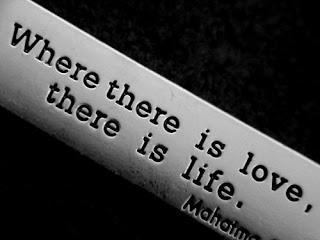
It's interesting to read (Catholic) commentator Fr. Matt Malone side by side with (evangelical) commentator John Shore on how some Catholics and evangelicals just love gay folks--as incomparable, egregious sinners whom the righteous have an overriding moral obligation to single out and save, while the common lot of sinners all over the place never receive such conspicuously loving treatment.
Malone:
Too often, for example, when the conversation concerns gay and lesbian people, the catechism is invoked as if it were a penal code that simply proscribes acts and prescribes punishments; the catechism, though, is a holistic treasury of the church’s living tradition, one that prompts us all to holiness. Too often, for example, the pastoral sensitivity that is extended to other people in unconventional living situations is withheld from gay and lesbian Catholics. In the one instance, a full pastoral response begins with, “It’s a complicated world and people lead complicated lives; they’re doing the best they can.” In the case of gay and lesbian Catholics, the pastoral response frequently begins and ends with, “Their lifestyle represents a radical social agenda that must be repudiated.”
And so Fr. Malone concludes (and I'd suggest that he might well be right) that this is precisely why the gays say we don't feel conspicuously welcome in the Catholic church: being chosen as a unique scapegoat group to carry the sins of the entire community while no other group of sinners gets similar treatment is more than a little uncomfortable. Just as it's uncomfortable to see church leaders never suggesting to those doing the scapegoating that perhaps they ought to be concerned about dealing with their own souls and their own sins, since the sin of self-righteous judgmentalism has long been regarded in Catholic theology as a more destructive one than any sin of the flesh.
And Shore:
No one tells the chronic drinker, glutton, adulterer, gambler, or any other kind of sinner that having committed their sin—that being the way they are—means they must stop experiencing love.
Yet living without love is exactly what anti-gay Christians insist upon for gay people.
When you tell a gay person to “resist” being gay, what you are really telling them—what you really mean—is for them to be celibate. It’s okay for them to be gay; they just can’t live out their gayness.
What you mean is that you want them to condemn themselves to a life absolutely devoid of the kind of the romantic, long-term, emotionally and physically intimate love that all people, Christians included, understand not only as their birthright, but as just about the greatest part of being human.
Be alone, you’re demanding. Live alone. Don’t hold anyone’s hand. Don’t snuggle on your couch with anyone. Don’t cuddle up with anyone at night before you fall asleep. Don’t have anyone at your table to chat with over coffee in the morning.
Don’t have or raise children.
Don’t get married. Live your whole life without knowing that joy, that sharing, that fulfillment.
Be alone. Live alone. Die alone.
The “sinful temptation” that Christians are forever urging LGBT people to resist is love.
Now isn’t that funny, given that love is the one thing that Jesus was most clear about wanting his followers to extend to others? It’s just so funny it makes you want to laugh till you cry.
They love us to death, don't they? The same way the ancestors of many of these folks once loved Jews, witches, and heretics right to death . . . .
It's always nice, as we read the Jewish prophets and as we encounter Jesus in the gospels, to call what we're all about love--even when we're practicing the very opposite. It's so soothing to the conscience to be able to rename prejudice, discrimination, isolation, injustice, and outright hatred as a manifestation of God's love, to see ourselves as the exemplar of God's love and the unique spokesperson for the divine.
From such Christian love, whether it falls from Catholic or evangelical lips--from being loved to death-- Save us, o Lord!

